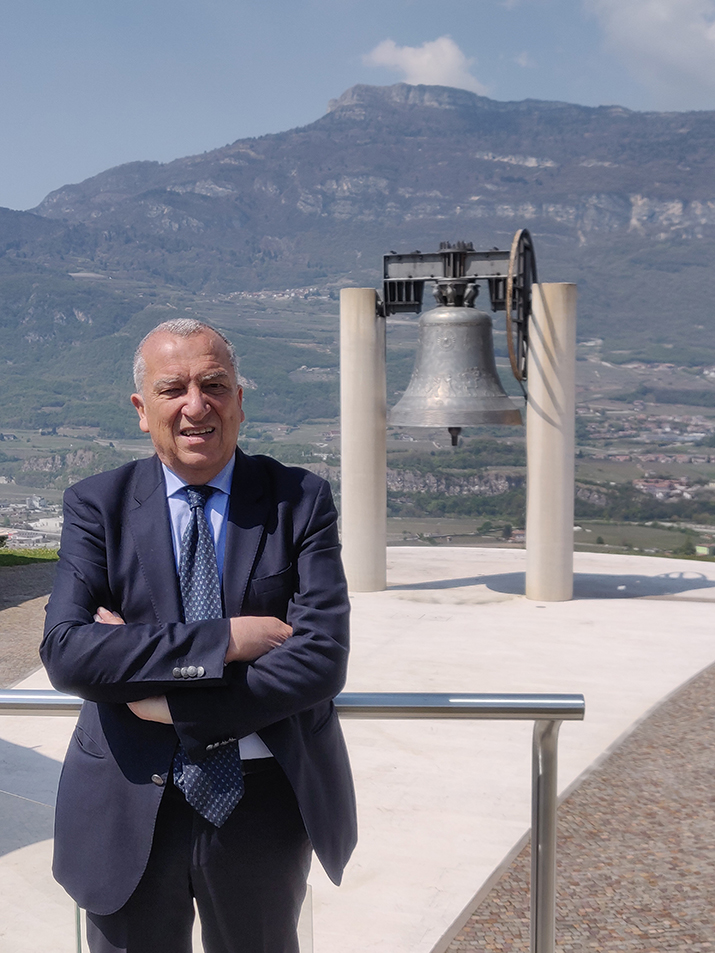In democratic systems, electoral exercise represents the highest moment in terms of the involvement of the population in the institutional life of a country, as it is associated with the prerogative of electing its own rulers. As a rule, it ends with the reconfirmation of those who have proven themselves valid and with a good riddance to those who in contrast have proved themselves incapable.
Of course, the value of the above consideration emerges in the presence of authentically democratic and pluralist states, respectful both of the traditional tripartition of powers and of the fundamental rights, and related freedoms, of their citizens. Recourse to the polls cannot, in fact, alone guarantee the ideal situation described above. History, but also current events, offer numerous testimonies of political systems careful in calling their citizens to vote on a regular basis, but the fact remains that inevitably your typical autocrat, already firmly established in power, is the one who emerges as the winner - usually with an overwhelming majority.
This assumption serves to introduce the subject of this analysis, Libya, which the international community had, in fact, recently “summoned” to vote with excessive haste, furthermore, on the date of a deep-seated, collective calling, that is to say December 24th, a national feast day.
As is widely known, the elections, which remained in the balance right up to the end, did not actually take place, due to the glaring absence of the minimum conditions necessary for the exercise of a vote that could be defined as «free and inclusive».
Italy could advance, in 2022, as the organizer of new international negotiations in a country very close to us for political and economic reasons
On the other hand, how can you choose your leaders in a territory where foreign contingents (primarily Turks and Russians) are still present and ready to intervene at the slightest opportunity? And in which the west (Tripolitania) and east (Cyrenaica) of the country respond to separate authorities, in constant conflict with each other and able to count on their own dedicated militias? And, also, in a territory where there is no complete certainty regarding the names of the candidates to be submitted to voters, but where a wanted man for crimes against humanity of the International Court of The Hague is guaranteed in that list, that is to say Saif al-Islam Gaddafi, son of the deposed (and brutally killed) former dictator?
We stop here, but the list of the very serious dysfunctions existing in Libya today could still be very long. A new, in-depth reflection on them is required by the international community involved in the mess of this tormented geographical area.
The so-called Berlin Conference took place in June last year, with the participation of 17 countries, including Italy, France and Germany on the European front, alongside Egypt, Turkey, Russia, Tunisia, Algeria, the Arab Emirates and others. Even a few months later, this format continues to ensure a wide representation of the main interests at stake, a conditio sine qua non for the achievement of an indispensable agreed understanding. Perhaps a decisive contribution could be made to the latter by the new special advisor for the United Nations, the American diplomat Stéphanie Williams, chosen by the secretary general António Guterres precisely in consideration of her specific experience in the area, gained in previous positions of responsibility.
At this point, the error to be avoided is above all that of giving a new and undue acceleration to a process of “sedimentation” of internal Libyan structures, both political and military as well as in terms of territorial balances, a process that could take a long time.
Obviously, adequate pressure must be maintained by the international community on the “strongmen” of the country, be they Prime Minister Dbeibah, the “boss” of Cyrenaica, General Haftar, or the president of the Tobruk Parliament, Saleh, in order to reach a consolidated agreement, avoiding the dangers of “derailment”.
At the same time, the second danger to be avoided is that of removing the case from the international agenda, as unfortunately happened in relation to Afghan affairs, despite the very serious humanitarian situation that arose following the entry of the Taliban into Kabul. Consequently, postponing the elections for a few months, in the face of such a prospect, does not seem such an excessive evil.
In the meantime, Italy could play an important role, also due to its very strong political, economic (energy), social (migrant) and other interests linked to the stabilization of the south-mediterranean country.
Once the new tenants at the Quirinale Palace and Chigi Palace have been established, our country could advance as the organizer of new international negotiations concerning Libya in the course of 2022, obviously in the presence of certain conditions present throughout the territory and with the consent of all the parties involved. Certainly a challenging initiative but capable of bringing valuable dividends in terms of our international image and credibility.
In a completely different context, I consider it only right to mention here, the two dates of the «Holocaust Remembrance Day» (January 27) and the «National Memorial Day of the Exiles and Foibe» (February 10), since they extend over the publication of two issues of the «Voice». I refer to the two recurrences for their extraordinary significance, both historical and as a warning for the future and which for some years have been opportunely included in the Laws of the Republic in the calendar of official commemorations of our country and which we have extensively covered on these pages.
Reggente Marco Marsilli, Foundation President









